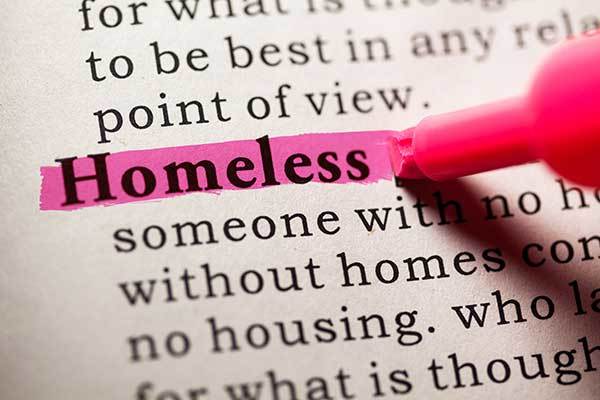You are viewing 1 of your 1 free articles

Homelessness can be ended and housing associations have a crucial role
Crisis’ new plan to end homelessness is a welcome show of determination, argues David Orr
Never let it be said that the housing sector is short on ambition.
In its 50th anniversary year, Crisis has set out a clear plan to end homelessness in Britain within the next decade. Not to reduce, or mitigate, or minimise homelessness – but to end it.
This goal (and the timescale for meeting it) is timely, not to say impressive. What makes it all the more remarkable is that Crisis has a clear and comprehensive plan to make it a reality.
“There is a desperate need for thinking that is this grand in its scale and ambition.”
There is a desperate need for thinking that is this grand in its scale and ambition. The number of homeless households is set to double before the middle of this century, so Crisis’s plan has not come a moment too soon.
Crucially, it is also a realistic plan. Crisis recognises that there is always a risk that someone could lose their home. What matters is ensuring that this happens as rarely as possible, and that a quick, long-term solution exists when it does happen.
A key part of this, simply, is having enough homes. Crisis’s plan is underpinned by research we jointly commissioned earlier this year, which found that there is now a shortfall of four million homes in England. As a result, we need to build 340,000 new homes every year – of these, at least 90,000 must be for social rents. If building can be increased to these levels, it will go a long way towards meeting Crisis’s goal.
“Without enough homes to go around, we will struggle to do more than discuss how we can best ration a scarce resource.”
However, if we don’t take urgent steps to meet this need, it is hard to see how we can seriously tackle the growing crisis of homelessness in this country. Without enough homes to go around, we will struggle to do more than discuss how we can best ration a scarce resource.
So it’s important that we do all that we can to boost the supply of homes (especially affordable homes), minimising the chance of someone becoming homeless in the first place. To tackle homelessness, we must build new homes and create new communities – something which housing associations have an ambition to deliver.
At the same time, it’s also important that we use every available measure to support people who do find themselves homeless. Housing associations across the country do vital work here, offering much-needed accommodation and support. In turn, this helps to tackle the causes and consequences of homelessness in people’s lives.
Crisis is right to recognise the role that the Housing First model has to play here. It provides vital support for people with complex needs, providing somewhere safe and stable to live as the matter of first priority. This then gives a secure foundation from which to tackle other deep-rooted challenges, without the precariousness that comes with homelessness.
Nevertheless, it’s important not to lose sight of the other ways to tackle homelessness. Housing First clearly has a vital role to play for some people with experience of homelessness, but it is not appropriate for everyone. For many, hostels and other supported accommodation can do a better job of meeting their specific needs. For example, Riverside’s Powerhouse centre in Liverpool combines temporary supported accommodation for young homeless people with skills training and counselling, helping them to move on to independent living. As a sector, we must continue to provide a holistic set of solutions to meet the huge variety of challenges faced by homeless people.
“Ultimately, to solve a problem as complex as homelessness, we need to make the most of every possible tool at our disposal.”
Ultimately, to solve a problem as complex as homelessness, we need to make the most of every possible tool at our disposal. We need innovative thinking to prevent homelessness in the first place, like Curo’s Passport to Housing, which helps residents to better manage their finances. We need to offer Housing First to the people who need it, while continuing to retain and invest in good quality short-term supported housing. And, crucially, we need support from the Government to help build more homes – especially social housing – taking away some of the broader pressures on our housing market.
This is not an easy undertaking, and nor is it something we should take lightly. Crisis has showed real vision in developing this plan to end homelessness. Now, we all need to work together – housing associations, charities, local authorities and all government departments – to make it a reality.
David Orr, chief executive, National Housing Federation
At a glance: Homelessness Reduction Act 2017
The Homelessness Reduction Act 2017 came into force in England on 3 April 2018.
The key measures:
- An extension of the period ‘threatened with homelessness’ from 28 to 56 days – this means a person is treated as being threatened with homelessness if it is likely they will become homeless within 56 days
- A duty to prevent homelessness for all eligible applicants threatened with homelessness, regardless of priority need
- A duty to relieve homelessness for all eligible homeless applicants, regardless of priority need
- A duty to refer – public services will need to notify a local authority if they come into contact with someone they think may be homeless or at risk of becoming homeless
- A duty for councils to provide advisory services on homelessness, preventing homelessness and people’s rights free of charge
- A duty to access all applicants' cases and agree a personalised plan









